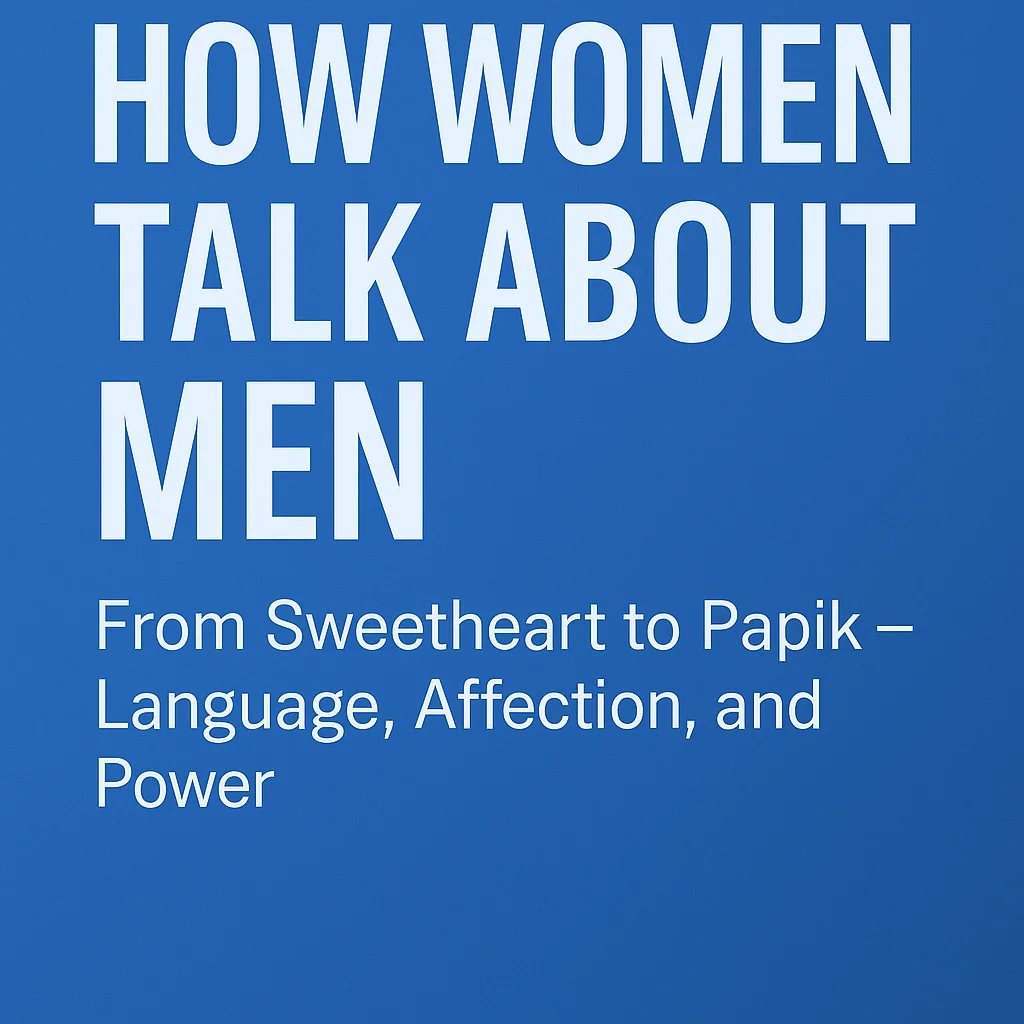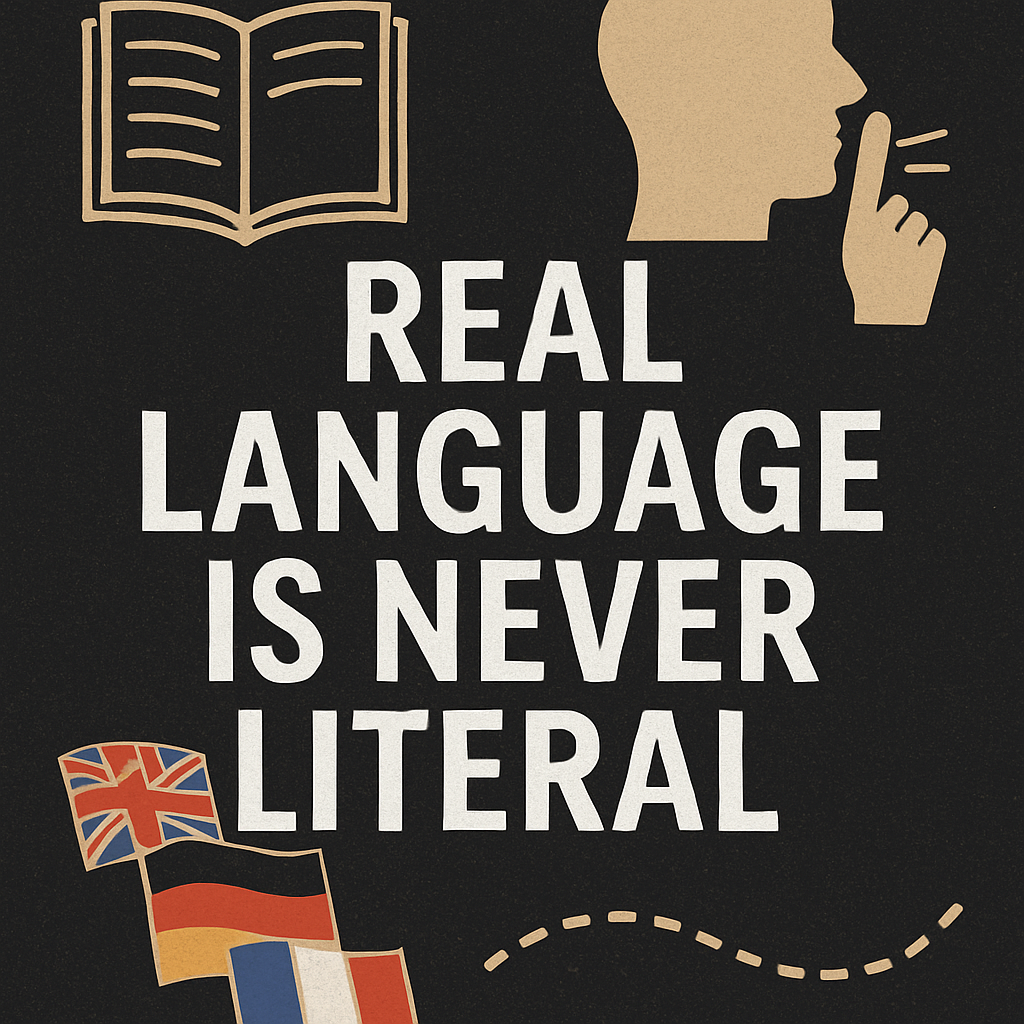🔵 Choose your language: https://levitinlanguageschool.com/#languages
Author’s Column — Tymur Levitin on Language, Meaning and Respect
© Tymur Levitin, founder and lead educator at Levitin Language School and Start Language School by Tymur Levitin
Words We Choose — And Why They Matter
Some time ago, a student asked me: “Why do men say baby? Is it supposed to be romantic, or is it just outdated or creepy?” That question opened a broader door. Not just to what men call women — we’ve covered that. Today, we’re asking:
How do women talk about men — and what does it tell us about age, emotion, culture, and language itself?
Let’s explore that evolution through a multilingual lens: from teenage flirtation to grown-up partnership, from admiration to irony, from boy to papik, cutie to Herr, crush to mujeriego.
Why This Topic is More Than Just Words
We don’t speak in a vacuum. Every word we choose reflects:
- 🔹 Age and social roles
- 🔹 Emotional maturity
- 🔹 Cultural perceptions
- 🔹 Romantic or ironic intent
- 🔹 Gender dynamics
This article is an invitation to observe, laugh a little, and learn.
📃 How Women Call Men (And What It Reveals)
We begin with the woman’s voice. Depending on her age, culture, intent, and relationship to the man, her vocabulary shifts dramatically.
Let’s take six languages: Inglés, Ucraniano, Ruso, Polaco, Alemány Español. The context: she is referring to or addressing a man — from teenage crush to life partner, from admiration to sarcasm.
| Age / Relationship | Inglés | Ucraniano | Ruso | Polaco | Alemán | Español |
|---|---|---|---|---|---|---|
| Teen girl → teen boy | crush, boy | краш, хлопець | краш, парень | crush, chłopak | Typ, Schwarm | crush, chico |
| Young woman → boyfriend | babe, boyfriend | зайчик, коханий | зайка, парень | misiek, chłopak | Schatz, Freund | cariño, novio |
| Woman → young man | cutie, sweetie | сонце, молодчик | милый, солнышко | słodziak, facet | Liebling, junger Mann | guapo, mi cielo |
| Mature woman → partner | dear, gentleman | дорогий, пан | дорогой, мужчина | kochanie, mężczyzna | Lieber, Herr | mi amor, hombre |
| Young → older irony | silver fox, daddy | папік, дідусь | папик, дедуля | sponsor, dziadzio | Sugar Daddy, Opi | viejo, don |
⚡ Note: In Spanish, viejo (old man) can be affectionate or sarcastic depending on tone. Just like papik in Slavic cultures, it often reflects irony or commentary on the age gap.
🤔 How Men Talk About Women (In the Same Scenarios)
Let’s mirror the scenes: how boys and men of different ages speak about women.
| Age / Scenario | Inglés | Ucraniano | Ruso | Polaco | Alemán | Español |
| Teen boy → girl crush | chica, cutie | дівчина, краш | девчонка, краш | dziewczyna, słodziara | Mädchen, Süße | chica, linda |
| Young man → girlfriend | babe, girlfriend | кохана, зайка | девушка, малышка | dziewczyna, kotek | Schatz, Freundin | mi amor, noviecita |
| Man → woman | lady, woman | жінка, пані | женщина, милая | kobieta, kochana | Frau, Liebling | señora, mi reina |
| Flirt → ironic usage | chick, babe | дівчонка, мала | чувиха, цыпочка | laska, małolata | Tussi, Schnitte | nena, bombón |
✉ Note: The shift from chica to woman isn’t just grammatical — it’s psychological. Many men keep using youthful terms far into adulthood, especially when aiming for flirtation or distance from emotional commitment.
⚡ Real Emotions Behind Words
This isn’t a dictionary. It’s real life. Let’s take examples.
- A 19-year-old Spanish girl says “ese chico es un guapo” — a flirty admiration.
- A 32-year-old Ukrainian woman refers to her partner as “мій чоловік” — dignity, respect.
- A Russian woman calls a wealthy older man папик — often sarcastic or resigned.
- A German teen might refer to her crush as “mein Schwarm”, a word that literally means “my swarm” — poetic, but distant.
🚀 Romance, Respect, or Role-Playing?
Whether it’s silver fox, guapo, sugar daddyo Freund, each word paints a story. The older we get, the more nuanced our language becomes. Or should become.
For a 16-year-old girl, cute guy might be enough. For a 40-year-old woman, she might seek words that reflect partnership, not posture.
At the same time, words like chica, baby, lady, nena o mała might make women feel seen — or reduced.
Everything depends on intent.
🤝 Conclusion: Words Grow As We Do
As we mature, our vocabulary should follow. We don’t speak the same way at 15, 25, and 45 — and we shouldn’t.
We can flirt, love, joke, or even tease — but we must know what we’re saying, why we’re saying it, and how it lands.
🔗 Insights from the International Blog of Start Language School by Tymur Levitin
- Girl, Baby, Detka: One Word — Two Worlds
- From Patsan to Man: How Language Shapes Male Identity
- How Men Talk About Women
📝 Author: Tymur Levitin
Founder and lead educator at Levitin Language School and Start Language School by Tymur Levitin.
22+ years teaching languages across cultures. Writing what we think, teaching how we speak.
🌐 More:
- https://levitinlanguageschool.com
- https://languagelearnings.com
- Blog in English
- Explore more in our U.S. Blog
📲 Follow:
- Facebook: @timurlevitin
- Instagram: @timurlevitin
- Telegram: @start_school_tymur
- Group: https://www.facebook.com/groups/728240905385457
This article is part of a signature series by Tymur Levitin, blending linguistics, cross-cultural psychology, and personal experience to elevate the conversation about language and identity.
























